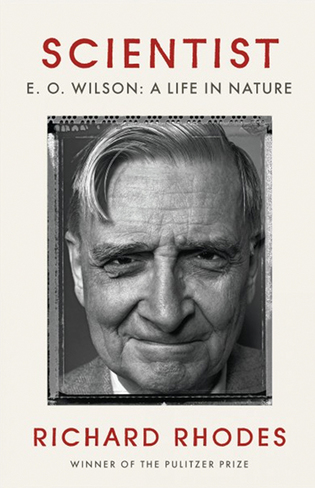
The Sex Lives of College Girls
Justin Noble ’07, Mindy Kaling
HBOmax.com
Reviewed by Sarah Lyall ’85
There’s a delicious moment in The Sex Lives of College Girls when the four main characters, first-year roommates at a college in New England, are discussing how to handle the impending horrors of Parents’ Weekend.
“Before our families arrive,” one roommate says, “I think we should all quickly share any lies we’ve told them that we’d like each other to corroborate.”
So Bela, an aspiring comedy writer, notes that her parents, high-achieving immigrants from India, “think I’m a neuroscience major, which I clearly am not.” Kimberly, a work-study student from Arizona, has told her family that she attends church every weekend. Whitney’s mother, a Democratic senator, believes that her daughter has joined the Young Republicans, and as for Leighton, a blond product of the Upper East Side, her parents have been told that the extra charges on their Net-a-Porter account are somehow related to her classes.
There is a great deal of sex in Sex Lives. (Those of us who attended college in less exciting eras can only envy how easily these characters jump into bed, and other places, with each other.) But mostly this engaging series is about reinvention, and how college is the place to do it.
It’s likely that Bela is a stand-in for the writer, producer, and actor Mindy Kaling, who is an executive producer on the series, along with showrunner Justin Noble ’07 and the veteran producer Howard Klein. The fictional Essex College, where it all takes place, is a kind of Ivy mashup, complete with stately old brick buildings, a cappella groups, keg parties, and a statue of the college founder in the quad.
The deeper issues—cheating, sexual harassment, being true to yourself, and the like—are addressed lightly. Even the weightier troubles (possible expulsion; an affair with a married soccer coach; coming out after a life in the closet) are resolved without undue angst. The joy of watching this series lies not in any life lessons it imparts but in the chance to spend time with its engaging characters and punchy script, and because it reminds you of what it felt like to be young and foolish and figuring it all out for yourself.
Sarah Lyall is a writer at large for the New York Times.
___________________________________________________________________

Rough Translation
Gregory Warner ’97
Reviewed by Eve Romm ’18, ’27PhD
What do evangelic environmentalists, Chinese dissidents seeking asylum in Taiwan, and the Argentinian host of a famously misogynistic talk show have in common? NPR’s Rough Translation explores just that, linking Harlem jazz in Sweden to Jane Austen novels in Pakistan with its simple but wide-ranging mission of “heading to far-off places to bring you stories that hit close to home.” The podcast’s host, Gregory Warner ’97, earned his chops in globe-trotting journalism as a freelance reporter in Pakistan, the Democratic Republic of Congo, and other conflict zones before becoming NPR’s East Africa correspondent.
Contrary to what its title might suggest, Rough Translation comments on translation only in the broadest possible sense, by offering vignettes that touch on issues of familiarity and foreignness, cultural hybridity and assimilation, and the crossing of national and societal boundaries. Much of their recent sixth season was devoted to a series entitled “Home/Front,” which explored the civilian-military divide within the United States.
One of the delights of Rough Translation’s six-season archive is the sheer range in tone and subject from episode to episode. Some stories are pure whimsical human interest, like the playfully deep dive into the history of a French McDonald’s. Others respond in hard-hitting and poignant ways to our political moment. As President Trump was undergoing impeachment hearings in the United States, Warner offered two fascinating episodes about the political situation in Ukraine, where a comedian had just won a landslide victory in the presidential election. The coronavirus pandemic also had its fair share of airtime. Rough Translation’s third season, produced during the panicked early days of lockdown, provides global perspectives on the spread of the virus. My personal favorite: the story of 180 COVID patients from a variety of religious backgrounds, all recovering together in a Jerusalem hotel.
Through these varied snapshots of family life, politics, humor, and struggle, Rough Translation presents a kaleidoscopically rich and delightfully nuanced vision of the contemporary global landscape. Listeners tired of the endless onslaught of bleak headlines will find this podcast to be a refreshing reminder of shared humanity across cultural differences.
Eve Romm, a freelance writer and translator, is studying comparative literature and Renaissance studies at Yale.
___________________________________________________________________

Scientist: E. O. Wilson
—A Life in Nature
Richard Rhodes ’59
Doubleday, $30
Reviewed by Bruce Fellman
When Harvard biologist and conservationist Edward Osborne Wilson died at 92 last December, colleagues and critics acknowledged the outsized influence of this naturalist, researcher, and writer. Wilson produced seminal work on the evolution of social behavior, stirred ecological consciousness, became one of the world’s experts on ants, and wrote hundreds of papers and more than 30 incisive books, two of which won Pulitzers for nonfiction.
Richard Rhodes ’59, himself a Pulitzer Prize winner, has produced a well-crafted book on the unlikely trajectory of “a polite, soft-spoken product of Gulf Coast Alabama, the first in his family to graduate from college.” Rhodes characterizes Wilson as “tough as nails, as bright as the evening star, and no man’s fool.” Such qualities served “Ed” well throughout a long and productive career. It began early; his parents’ marriage disintegrated when he was very young, and the result was a “nomadic existence [that] made Nature my companion of choice.” He became an ant aficionado and trained himself in identification. At 13, he was one of the first to document an invader known as the red fire ant, which had arrived from South America and set up shop near his home in Mobile.
Wilson attended Harvard in the 1950s and joined the faculty after receiving his PhD. His research took him to insect hotspots around the globe. Although Harvard had one of the best bug collections in the world, the study of entomology was losing favor to molecular biology. Yet Wilson prospered for half a century in Cambridge. He advocated energetically for the conservation of nature, especially “the little things that run the world.”
Rhodes says of Wilson that he “never stopped growing in knowledge or expanding in range.” What a life.
Bruce Fellman is a contributing writer.
 loading
loading

